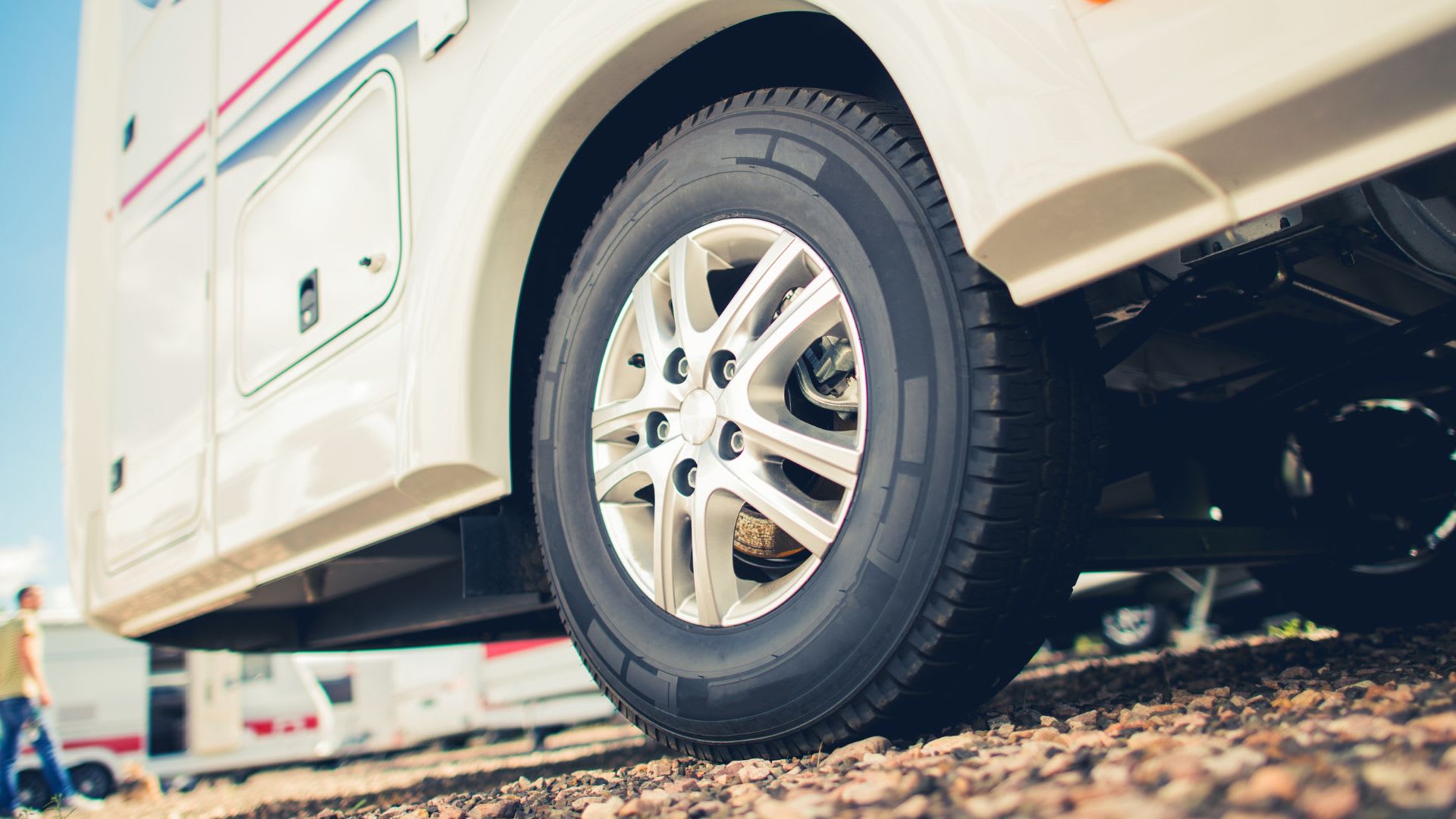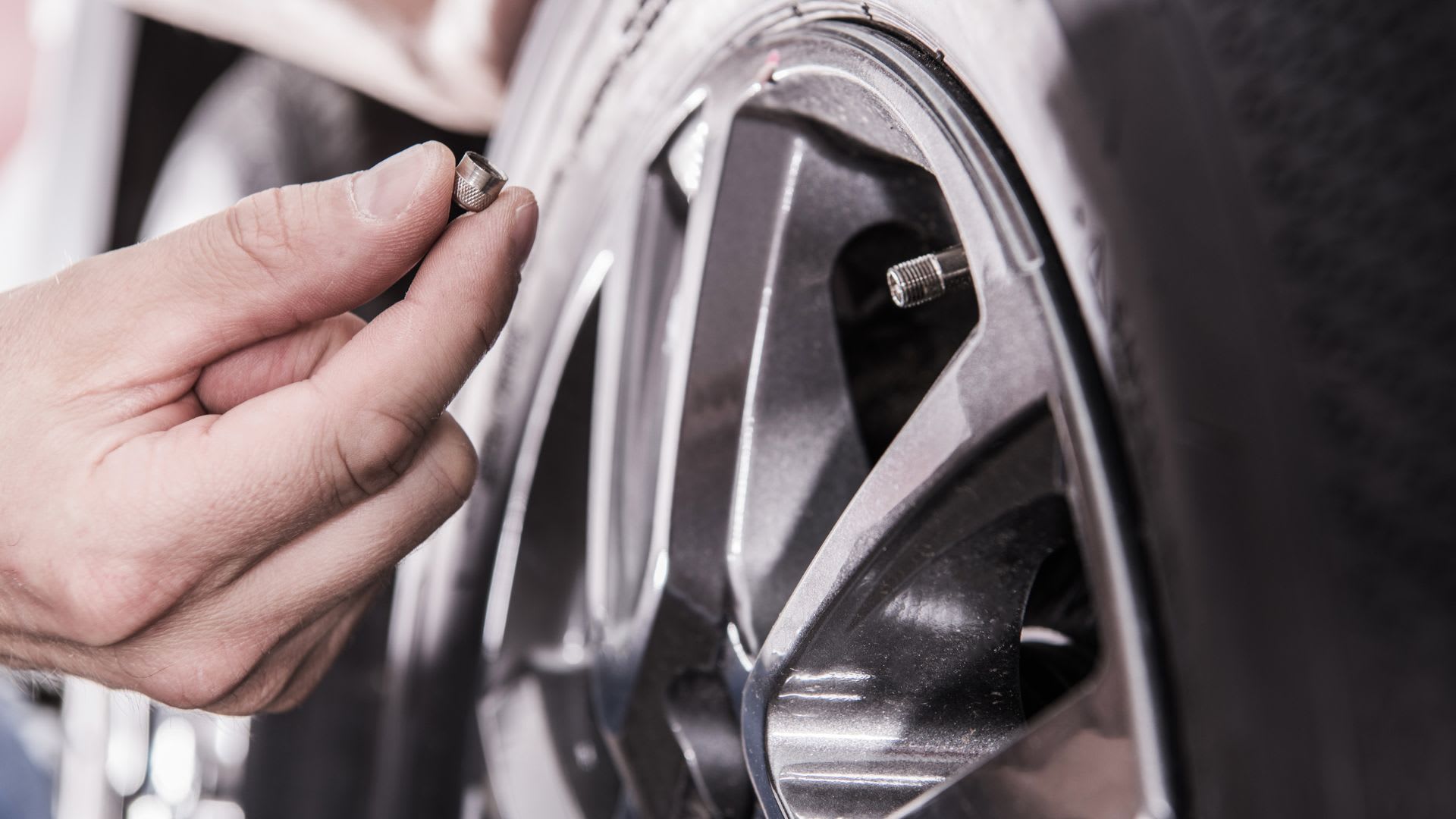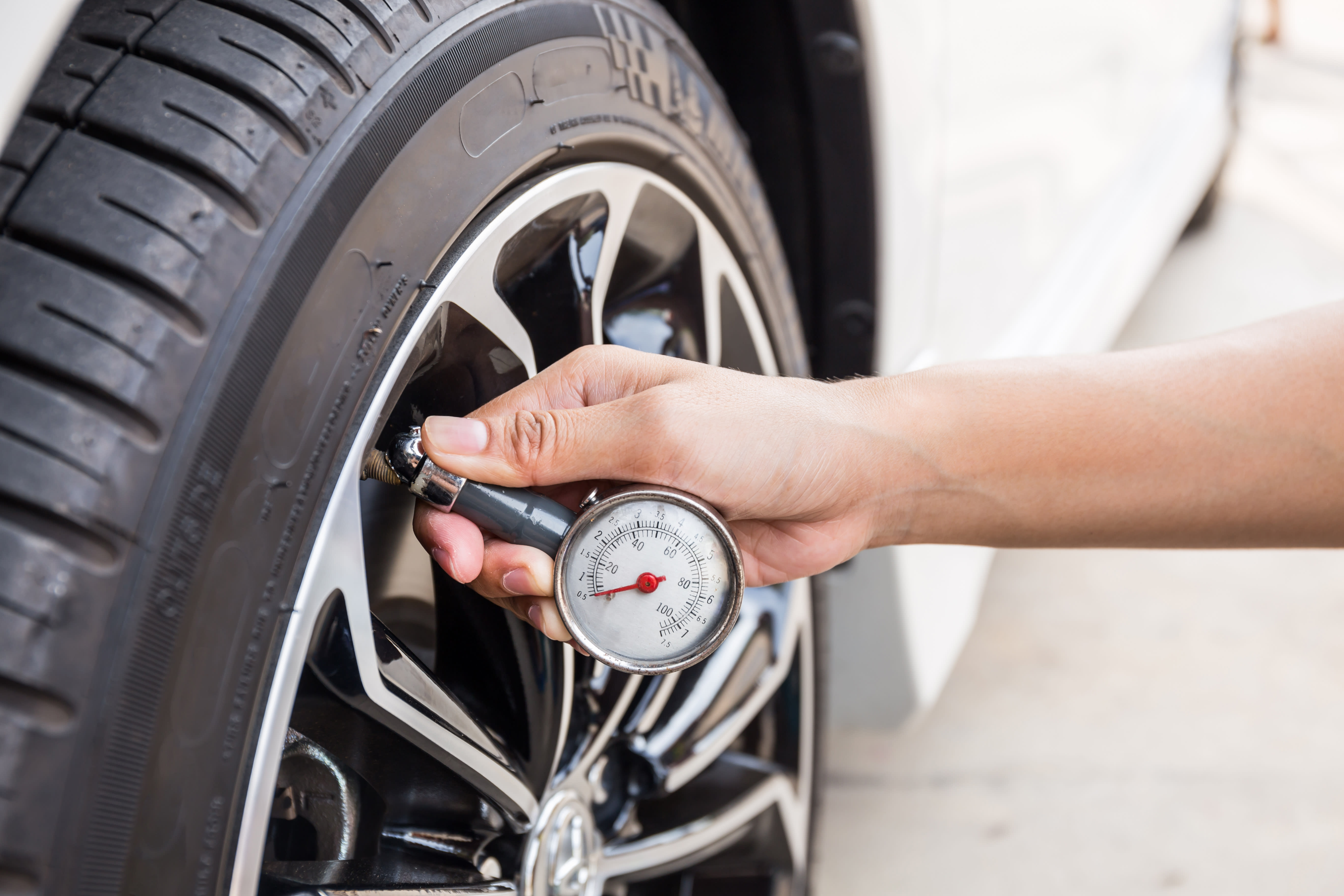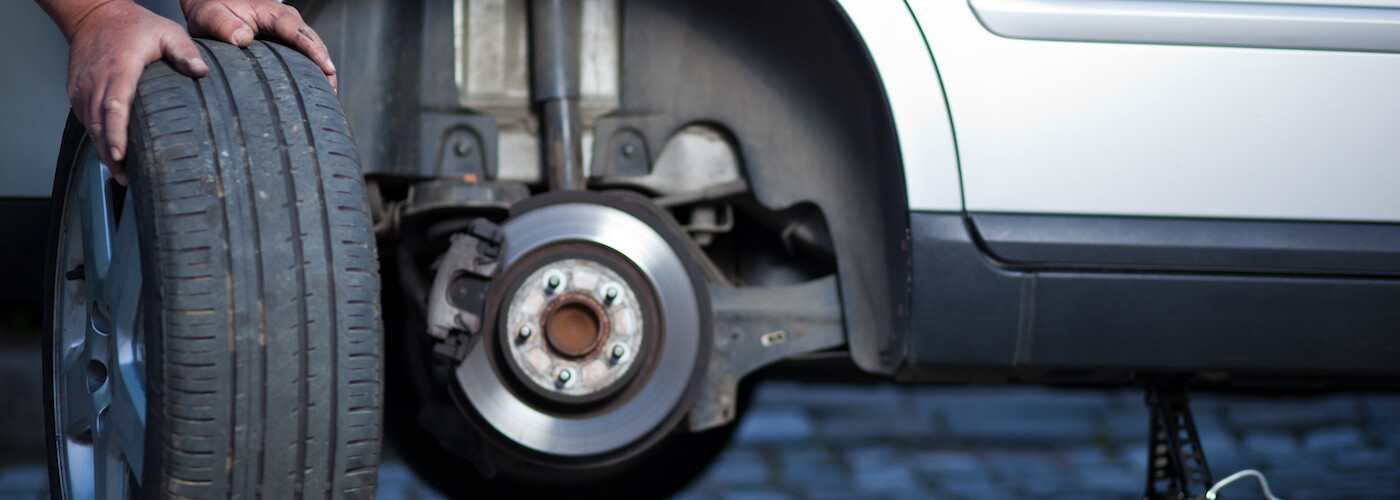Tire News & Information
Free shipping
Best price guarantee
Special pricing
Financing with Resolve
Easy returns

Going on an RV adventure is an exciting way to explore the open road and create lasting memories with loved ones. However, before hitting the highway, it's necessary to ensure that your RV's tires are in top condition.
Properly maintained tires not only provide a smoother ride but also contribute to the overall safety of your vehicle and its occupants. Neglecting tire care can lead to a range of issues, from decreased fuel efficiency to potentially dangerous blowouts on the road.
By understanding the fundamentals of RV tire maintenance, you can help prevent unexpected problems during your travels. Taking proactive steps to care for your tires will give you peace of mind and allow you to fully enjoy your RV experience.
Why is RV Tire Care Important?
RV tires play a critical role in ensuring safe and comfortable travel. These specialized tires are designed to handle the unique demands of recreational vehicles, such as heavy loads, extended periods of use, and exposure to various weather conditions.
Proper care and maintenance of RV tires can significantly extend their lifespan and optimize their performance. Regular attention to factors like tire pressure, tread wear, and overall condition helps prevent premature wear and tear, which can lead to costly replacements or even dangerous situations on the road.
Moreover, well-maintained RV tires contribute to better fuel efficiency, improved handling, and a smoother ride overall. By investing time and effort into understanding and implementing proper tire care practices, RV owners can save money in the long run and enjoy a more reliable, stress-free travel experience.
How to Care for Your RV Tires

Regular maintenance forms the backbone of keeping RV tires in top condition. It's not just about checking occasionally; it requires a consistent focus on various elements like pressure, cleanliness, and detailed inspection.
Monitoring Inflation
Ensuring the right tire pressure is essential for safety and efficiency. Use a dependable gauge to regularly check your tire pressure, ensuring they aren’t too low or too high.
- Importance: Tires with low pressure can lead to increased fuel use and risk of blowouts, while those with too much pressure may wear unevenly. Always check pressure when tires are cool to get the most accurate reading.
Effective Cleaning
Keeping your tires clean helps protect them from long-term damage and keeps them looking good. Use a gentle soap with water to wash your RV tires, steering clear of any products with harsh chemicals.
- Advantages: Regular cleaning removes dirt and debris, preventing premature aging of the rubber. This also aids in spotting potential problems like cracks or lodged objects.
Comprehensive Inspection
Frequent checks are crucial for spotting issues early and avoiding on-road problems. Before setting off on any trip, take a good look at your tires.
- Key areas: Examine the tread for signs of wear, any cracks, or foreign objects. Don't forget to inspect the sidewalls for bulges or other irregularities. Identifying these issues early ensures your safety and helps maintain tire longevity.
Incorporating these steps into your regular maintenance routine can significantly boost the performance and lifespan of your RV tires, ensuring each journey is as safe and efficient as possible.
1. Check RV Tire Pressure Regularly

Keeping your RV tires at the proper pressure is crucial for their longevity and your safety on the road. Tire pressure impacts how well your vehicle performs overall, from handling to fuel efficiency. Regular checks of tire pressure help catch potential issues before they become serious problems.
Importance of Accurate Readings
Investing in a high-quality gauge is important when assessing tire pressure. Consider using digital or dial gauges for their superior accuracy.
- Tip: Measure tire pressure in the morning or after the tires have been at rest for a few hours. This ensures your readings are not skewed by the heat generated from driving.
Consequences of Improper Inflation
Keeping tire pressure within the recommended range is vital.
- Too little air: Under-inflated tires can deform, leading to heat buildup that might cause blowouts.
- Too much air: Over-inflated tires often wear down faster in the middle, reducing their overall lifespan. Both conditions can affect your RV’s handling negatively.
Regular Monitoring
Incorporate tire pressure checks into your routine maintenance schedule to ensure safe travels. Aim to check your tires monthly and before long journeys.
- Note: Temperature changes can alter tire pressure, so adjust the levels according to the season to keep them optimal.
By prioritizing these checks, you ensure that your RV runs smoothly and efficiently, making every trip safer and more enjoyable.
2. Clean Your RV Tires Properly
Maintaining the cleanliness of your RV tires is an essential aspect of tire care that extends beyond aesthetics. Proper cleaning helps preserve the integrity of the rubber, ensuring that your tires remain safe and functional over the long haul. By adhering to a consistent cleaning routine, you can significantly reduce the risk of tire damage and extend their lifespan.
Cleaning Techniques
For effective tire maintenance, choose cleaners specifically formulated for rubber. This ensures that the products won't strip away essential oils from the tire material.
- Best practice: Use a soft cloth or sponge to gently lift away grime and road residue, particularly from the tire's sidewalls and tread, where buildup can occur. Ensure a thorough rinse to leave no residue.
Avoid Harmful Products
Selecting the right cleaning agents is crucial to tire health. Shy away from using products with alcohol or silicone, as they may cause the rubber to dry out or become brittle.
- Reason: These ingredients can compromise the tire's flexibility and lead to cracking over time. Instead, look for environmentally safe options that provide a protective layer against the elements.
Benefits of Regular Cleaning
Integrating regular cleaning into your tire maintenance routine offers several advantages. It helps maintain the tire's natural color and prevents the buildup of substances that could lead to deterioration.
- Long-term benefit: Clean tires enhance overall vehicle appearance and performance, as they maintain better traction and are less prone to uneven wear. Regular upkeep ensures your tires are ready for all your adventures.
3. Inspect Your RV Tires Frequently
Frequent tire inspections are essential to maintaining the safety and performance of your RV. By regularly assessing your tires, you can prevent minor issues from turning into major problems. This proactive approach helps keep your travels smooth and reduces the risk of unexpected interruptions.
Critical Inspection Points
During an inspection, it's important to focus on several key areas.
- Tread Wear: Evaluate the tread for consistent wear patterns; uneven wear might suggest alignment or balancing issues.
- Sidewall Condition: Carefully check the sidewalls for signs of damage, such as cuts or bulges, which can weaken the tire's structure.
- Embedded Debris: Inspect for any foreign objects like stones or metal pieces that could penetrate and compromise the tire.
Establishing a Routine
Creating a regular inspection schedule can enhance your vehicle's reliability.
- Pre-Trip Checks: Make it a practice to thoroughly examine your tires before each journey. This comprehensive look should include all visible aspects of the tire, ensuring no signs of damage are missed.
- Periodic Reviews: Even during a trip, take opportunities at rest stops to conduct quick checks, ensuring no new issues have developed while on the road.
Benefits of Proactive Maintenance
By detecting and addressing issues early, you can avoid inconvenient breakdowns and ensure a safer driving experience. Planning for necessary tire repairs or replacements in advance allows you to address potential problems on your own terms. This foresight not only helps save on unexpected expenses but also contributes to more enjoyable and worry-free travels.
4. Protect RV Tires from Sun and Weather
Exposure to the elements can have a significant impact on the condition of RV tires. Factors such as prolonged sun exposure and harsh weather can accelerate tire wear. Implementing protection strategies is vital to preserving tire integrity and performance.
Defending Against UV Exposure
Sunlight, particularly UV rays, can severely deteriorate rubber, causing it to crack and degrade.
- Employ tire covers: When your RV is parked, especially in sunny areas, using tire covers is an effective method to guard against UV damage. These covers serve as a shield, helping to maintain the tire's structural integrity and flexibility. This precaution is a cost-effective way to prevent damage and enhance tire durability.
Optimal Storage Conditions
Storing your RV in a shaded location can help protect tires from various weather conditions.
- Covered storage options: Utilizing a garage or canopy provides a controlled environment, reducing exposure to rain, snow, and temperature fluctuations. These protective measures help minimize environmental stress on tires, ensuring they remain in good condition for future use.
Supplemental Protective Practices
Additional strategies can further safeguard your tires.
- Regular tire rotation: This ensures that all tires experience similar environmental exposure, reducing uneven wear.
Monitor weather impacts: In extreme climates, adjust maintenance routines to address specific challenges, such as high humidity or severe cold. These practices contribute to maintaining tire quality and readiness for your next adventure.
5. Rotate Your RV Tires

Regular tire rotation helps distribute wear evenly across all tires, optimizing their performance and longevity. This practice can prevent uneven tread wear and enhance overall vehicle handling. By routinely changing the position of each tire, you ensure that they all share the load equally, thus maximizing their lifespan.
Advantages of Rotation
Consistent tire rotation offers numerous benefits that enhance tire durability.
- Balanced Wear: By altering the tires' positions, you ensure they wear down uniformly, which helps maintain optimal traction and stability.
- Prolonged Use: Routine rotation can significantly extend the service life of your tires, making it a practical and economical maintenance practice. This approach not only conserves resources but also ensures a safer driving experience by keeping your tires in peak condition.
Creating a Rotation Plan
Establishing a regular schedule for tire rotation is key to reaping these benefits.
- Mileage Guidelines: Typically, it's advisable to rotate RV tires every 6,000 to 8,000 miles, although this may vary based on specific driving conditions and load.
- Rotation Patterns: Choosing the correct pattern for your rotation is important—common methods include straight rotation for even balance or cross rotation for more comprehensive wear distribution. Consulting your vehicle's maintenance guide or a tire specialist can provide clarity on the best approach for your RV.
Incorporating tire rotation into your regular maintenance routine ensures your tires remain reliable and effective, supporting a smoother and more enjoyable journey. Prioritizing this straightforward yet crucial task helps you make the most of your tire investment, securing their dependability on every adventure.
By implementing these essential RV tire care tips, you can ensure a safer, more enjoyable travel experience for you and your loved ones. Remember, investing time and effort into proper tire maintenance not only extends the life of your tires but also provides peace of mind on the open road. When you're ready to shop for new RV tires, we invite you to explore our extensive selection at SimpleTire, where we are committed to providing you with the best deals and expert guidance to keep you rolling with confidence.
Ready to find the perfect tires?
Search By